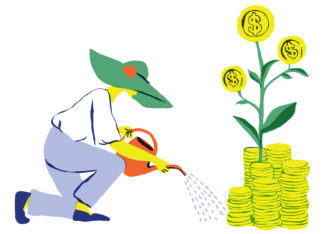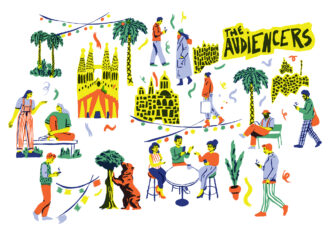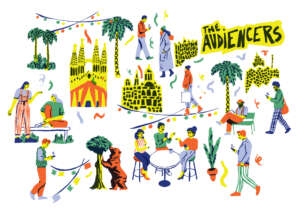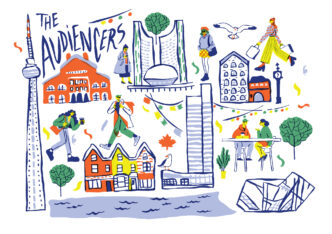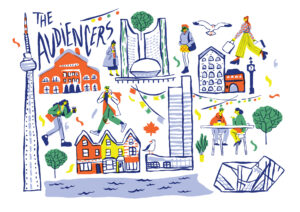

Content is everywhere. It’s unfortunately not so much as a differentiator for your product anymore.
Community, on the other hand, is not a commodity. It’s an asset. Something that feeds into your brand value, that a user will come back for and that will make you different from other publishers producing similar content.
What’s more, when audiences aren’t on your site, they’re spending a great deal of time on social media, growing accustomed to certain experiences and features that keep them coming back for more. They can…
- Interact with content
- Comment
- See other user’s opinions
- Join events
- Like and share content
- Follow topics and authors that match their interests
These experiences have become user expectations, making traditional digital publisher sites seem passive with very little direct interaction.
In short, we’re social beings who want to react and have human experiences – and it’s this that makes community so powerful. Publishers therefore need to build a bridge between user expectations and experiences on their sites.
The challenge with community building
All publishers with a reader revenue strategy aim to subscribe their audience. The problem, however, is when they try to go from 0 to 100 – from unengaged to a loyal subscriber.
We can compare it to dating – you wouldn’t immediately ask someone to marry you (unless maybe if you’re on ‘Married at first sight’!), you’d ask them to dinner first.
Community helps to provide these intermediary steps, building engagement before trying to get value from your audience. I.e. Community-led conversion.
Not only this, but community has been proven to correlate with engagement metrics, bringing readers back on a more frequent basis, consuming more content and staying on site for longer. This naturally supports engagement, as well as conversion, retention and, ultimately, lifetime value.
The goal of this article: benchmarks to build a solid community strategy
- Be in your audiences’ pocket, even if you don’t have a mobile app
- Establish more personal relationships – WhatsApp is traditionally for conversations between friends and family, but you now have the chance to enter into this very personal space
- The new WhatsApp’s Communities format – this product offers valuable features, including a notably augmented maximum membership limit and the crucial ability to hide user numbers, thereby safeguarding user privacy. Furthermore, the seamlessness of sharing the community link and joining the community itself has remarkably streamlined user acquisition process. This has removed any technological barriers and frictions for users, regardless of age; joining the community is an intuitive process, universally understood.
Case study: Pamplonews
“Pamplonews is all about Pamplona and its community, offering localized information and topics in a unique style. Unlike traditional local media, which often cover a broad range of subjects and areas, we focus on a distinct agenda. While other outlets may churn out the same mix of stories, including local, national, politics, crime, entertainment, sports, weather, and business, we steer clear of that terrain.
Our approach revolves around serving up news that’s useful, events, and lifestyle content—stuff that enhances our users’ experience of the city and lets them squeeze out all the enjoyment.”
> Read the full interview with co-founder Juan
Commenting
Whilst only one of the ways of engaging readers, it’s a foundation of the community model, helping readers get involved in journalism.
- Encourage conversations between readers on a specific article
- Block content with a registration wall or paywall, but leave comments open to create a sense of FOMO
- Require readers to create an account in order to comment or react to someone else’s comment
- Consider engagement-based blocking of comments – for instance, block after a certain amount of time to convert readers who usually hover over the comments but never participate
- Notification bell to bring readers back
For example, The Telegraph has been developing their commenting feature, helping it to play a larger role in their wider community- and loyalty-building strategy.
“Since the beginning of this year (2024) we’ve been working closely with our editorial team to get writers involved in the comments section, interacting with our audience. It’s one of the strategies that’s been the most effective in getting readers engaged. We’ve seen a 119% increase in the number of comments that are posted once an author has ‘gone below the line’ (i.e. joined the comments section).”
> Read more in our article from The Times and The Telegraph speaking on commenting and community
User generated content: citizen reporters
Social media platforms are great for new audience acquisition, but creating social media-inspired features on your website are valuable for having audiences engage on-platform.
- Graham Media launched “Pins”, their own photo and video posting platform that the newsroom can then use in stories.
- Village Media have just launched “Spaces” their own chatting platform, for users to connect with others based on topics of interest or joining in on conversations
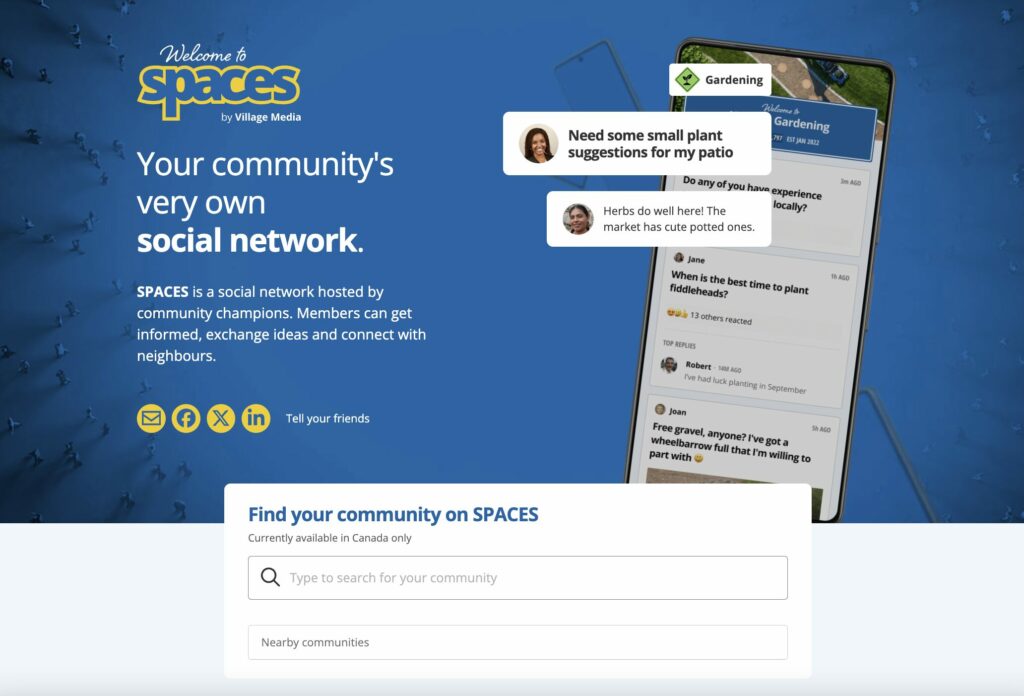
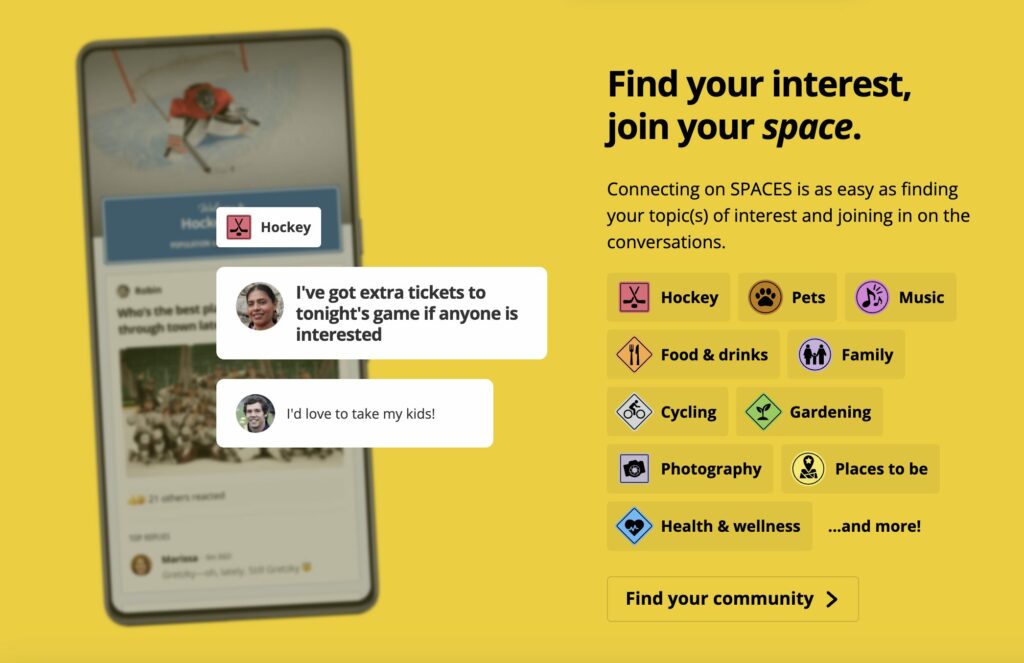
Forums
Create discussion groups around specific topics to engage readers in a niche that matches their interests.
Digital Spy, for instance, have forums around different TV show, films, etc. which has significantly supported engagement and relationship-building efforts. They even had a member write in to share that they met their partner through the forum and have now got married!
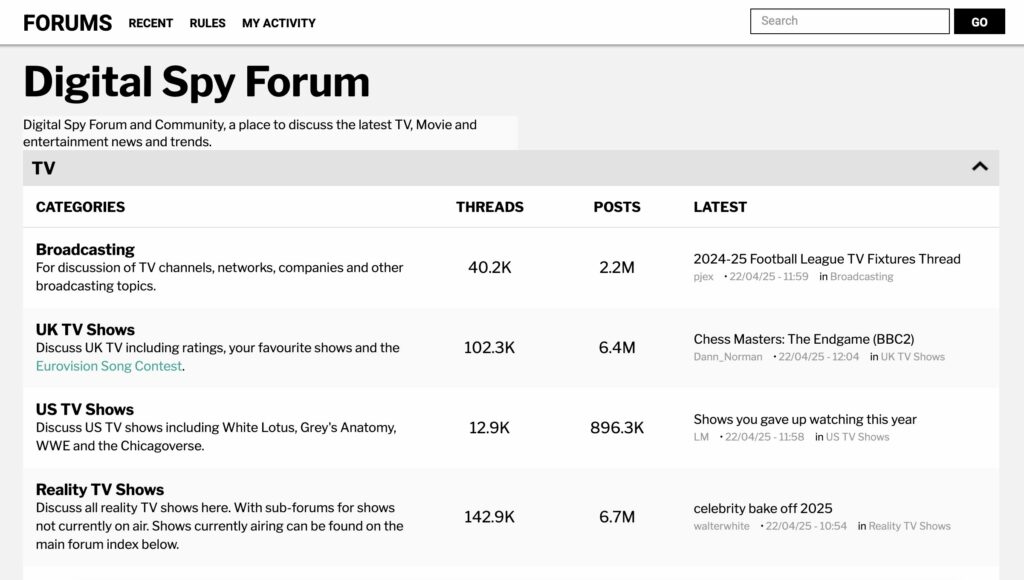
Debating
For many publishers, regular commenting is a key engagement feature, but too much of it can overwhelm AI and human moderation efforts, not to mention make it difficult for users to follow discussions.
This was the case for DER SPIEGEL in Germany. The sheer volume of comments, coupled with discussions on the same topics occurring across multiple articles, diluted the feature’s value and prompted a reevaluation by the product team.
After research and testing, the team developed a debating feature, allowing readers to share their opinion on a specific topic or question, linked to one or many articles on the site.


You only need to create a free account or log in to read the debates, but in order to actually comment, react, see the distribution of votes (before the debate has ended) or suggest a debate topic, you need a paid subscription.
Some initial results
- Within the first 7 hours of launching, 10,000 users logged in within the debate space
- In the first year, the team created over 900 debates with more than 3M votes and about 400K comments.
- The quality of comments has increased with feature changes. “That is a qualitative observation for now. But it is also reflected in the rate of accepted comments, which has risen from 80-85 to 85-90 percent.”
Registration
Registering audiences is arguably THE biggest priority for publishers in 2024, and rightly so:
- Increased engagement (at 20 Minutes, logged users spend 2 times more time on page and have 4 times higher page views)
- Higher propensity to subscribe (40x at The Independent)
- More advertising revenue through increased engagement and targeting
- Data collection & better understanding audiences
- Increase lifetime value (see here)
- Improve the user experience, such as with personalization
And community is a valuable asset that you can offer in exchange for registration, as part of your value proposition.
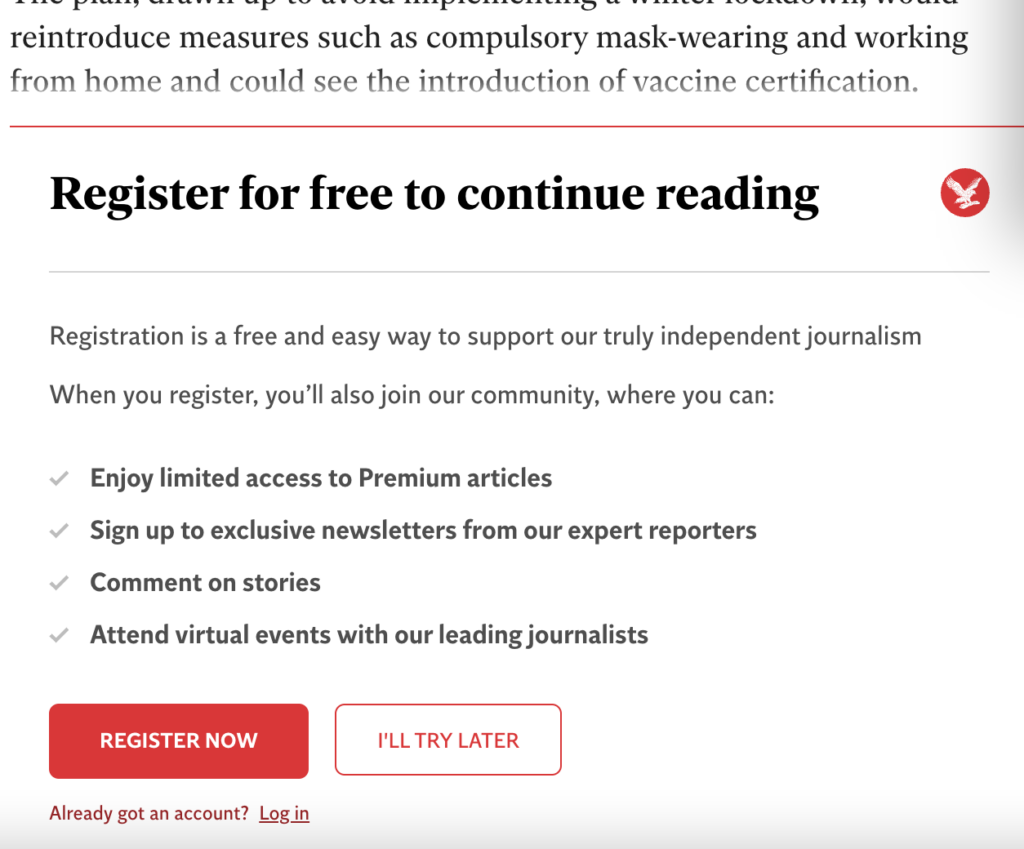
Registration best practices:
- Define a clear value proposition just as you would for a subscription offer
- Forefront the value that users will get in exchange for registration (e.g. a lighter ad experience, exclusive content, your newsletter, UX features, etc)
- Reduce the number of clicks, typing and scrolling needed to register (i.e. reduce friction)
- Onboard newly registered users just as you would subscribers, considering which engagement actions often lead to high LTV
- Make sure to connect registration with subscription, if you employ a premium model
- Bring the reader back to the article they were hoping to access in the first place
- Offer real value in exchange for registration, making sure to emphasize this value at each step in the journey – find 10 ideas here
- Only ask for the information you need – there’s no point in creating extra work for the reader if you won’t use it
- Welcome the reader, either onsite or via email
- Consider offering the option to register with an existing social account, such as Google, Facebook or Apple
- Don’t forget about the registration experience on mobile, perhaps offing app download as one of the onboarding steps
Conversations with journalists
Building relationships is an essential piece of the community puzzle, and it’s significantly easier to build relationships between 2 people than between a person and a brand. This is why giving your editors, journalists and podcast hosts the chance to have 1-to-1 conversations with readers is essential.
The Toronto Star has seen great success with the Billionaire Murders podcast, but the majority of this engagement was off-platform. The question was ultimately how can these audiences be brought back to their own platform? How can The Star create unique experiences for these users that they’re not getting already with the podcast?
The solution was a masterpiece collaboration between product, marketing and the newsroom – an Ask Me Anything feature.
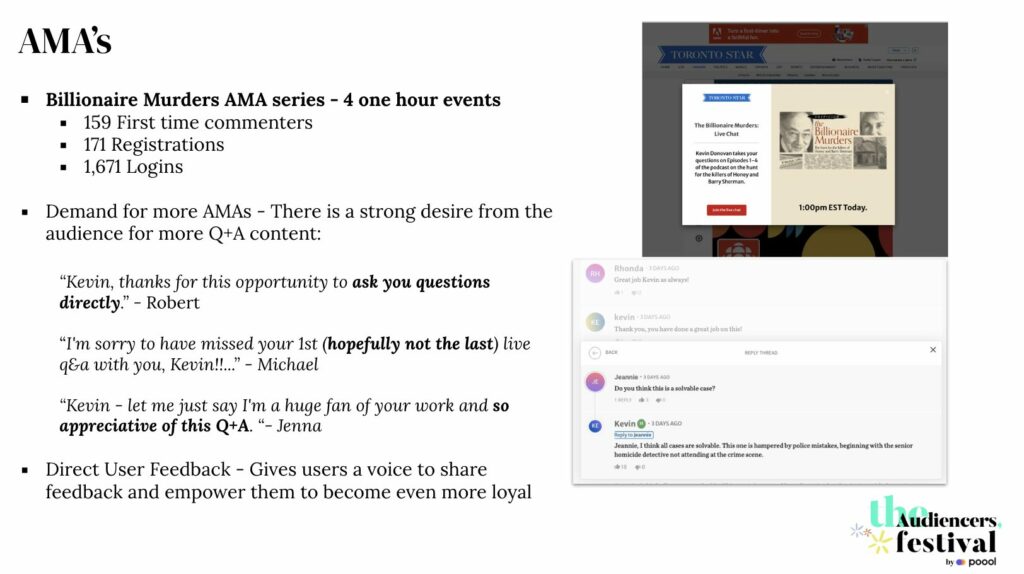
Best practices that have made this strategy so effective:
- Signposting the fact that a journalist is ‘going below the line’ across all platforms, with a specific time for readers to join
- Being able to pin comments to highlight them to readers
- Have a badge to verify journalists so readers know to trust them
- Highlight the best questions and answers with a particle, making readers feel recognized and valued
Reader-led stories
Call-outs for journalists to get information for articles directly from readers means that your audience feel involved in your work and see themselves as part of the brand’s value. These call-outs could ask for reader opinions, get them to share their experience and send in photos giving their perspective on an event, or try to reach out to experts on a topic.
This is something The Globe and Mail has been testing.
“For instance, Toronto had a snow day last month (fairly rare here, surprisingly) so we asked readers to submit their memories of snow days as a child, leading to a really heartwarming story pulling together all of these experiences. It’s also this kind of journalism that helps combat news avoidance and balance out the more negative news events.
We also work with individual reporters to run call-outs. For example we have a happiness reporter, who ran a call-out for readers to nominate the happiest person they know!“

“It was such a great piece, sharing all these stories and sharing what we can learn from these happy individuals. Wonderfully it was one of the most successful stories in the first week of January and ended up being republished into a Q&A with our happiness reporter.“
> Full interview with Audience Growth Manager, Rebecca Zamon, here
The Daily Maverick even had a database of contactable readers and their expertise, collected during the membership onboarding journey, ready for whenever they’re in need of additional knowledge.
1-2-1 conversations
Historically, the only moment that a reader can speak to someone working at the publication is when they’re trying to cancel their subscription or if they have a problem. In fact, these personal calls can go a long way in retaining members.
Zetland, for instance, ran a project whereby the whole team worked to call their members and simply say thank you, building that all important human relationship.
Bringing online communities IRL
Events organized by publishers are nothing new, but this strategy can be taken a step further with some innovation to go with it to build communities that go further than your website to connect IRL.
For example, Blick.ch launched a hiking vertical, 26summits, with the goal of building a community of readers interested in hiking (a very popular hobby in Switzerland).
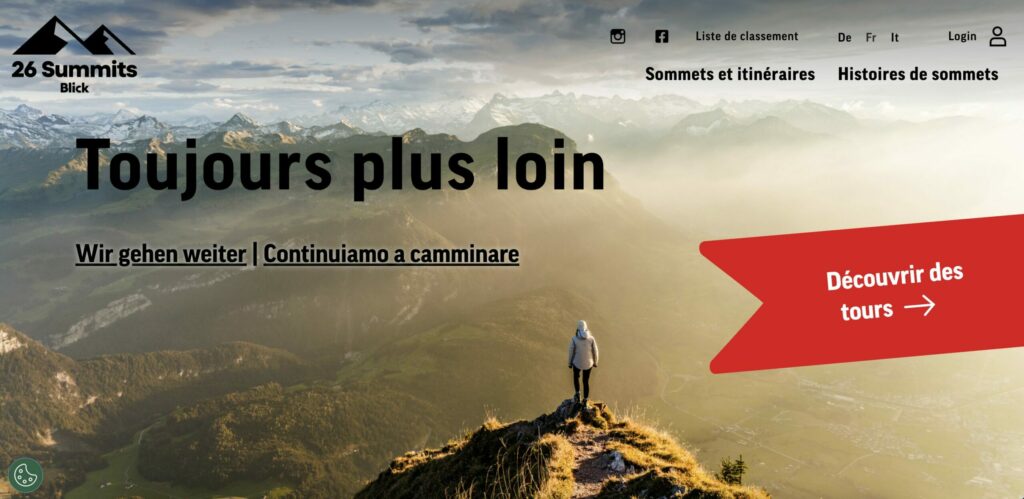
Launched in 2020 during the Covid pandemic, Blick’s hiking campaign challenges individuals to hike 26 peaks in each of the 26 regions of Switzerland, scanning the QR code at the peak, gaining points and prizes (for every hike you win a prize, such as a voucher for partner stores or a hiking product).
The results:
- 3.3 million page views on 26summits.ch
- 1.8 million unique users
- 25k registrations
- 4.3 survey reviews showing great user feedback
Next steps:
User feedback has been very positive, so much so that participants would like to connect with each other to hike together and discuss routes. This has led the publisher to recently launch the 4th edition of 26summits with its own Facebook group!
Bringing IRL communities online
Finding existing communities and brining them online, helping to provide a space for them to interact around your content, is a valuable strategy to grow more organically.
Australian Broadcasting Association for instance placed QR codes around the city during Queer history month, linking to articles describing what happened there.
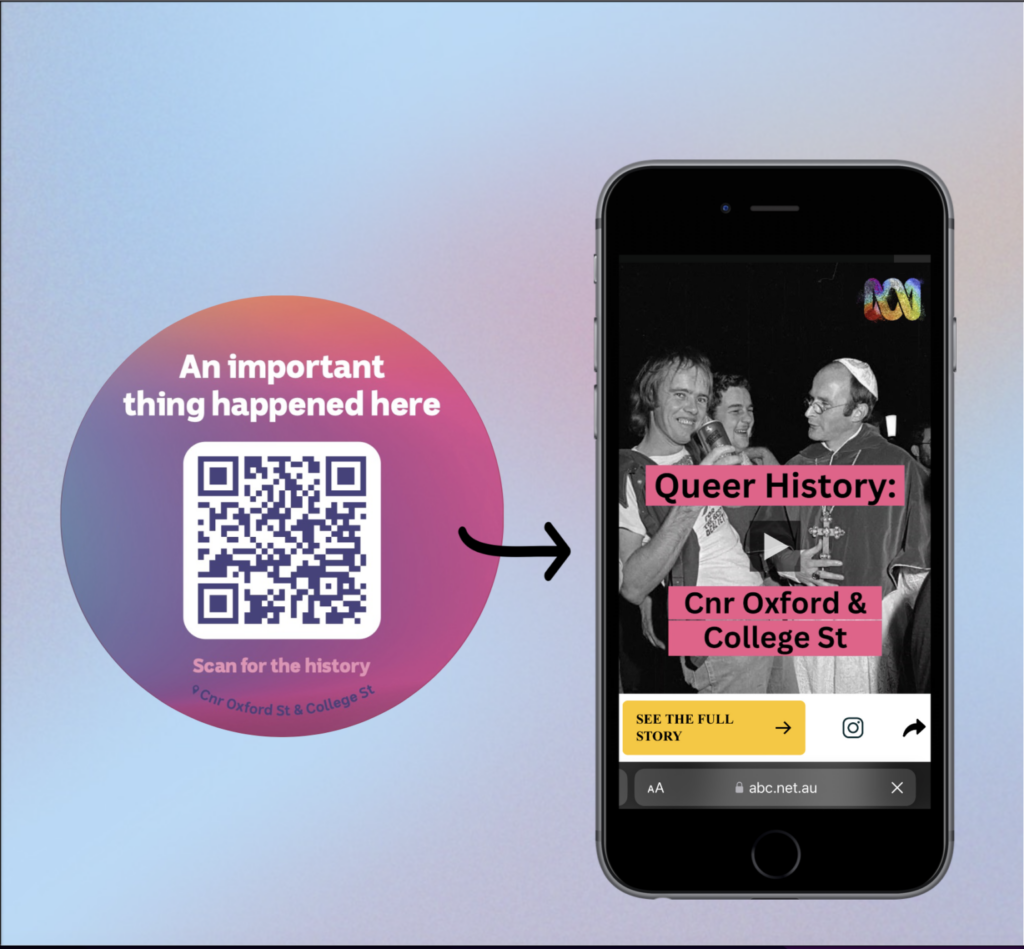
“For Sydney World Pride, the team created a web interactive that re-traced the route of the first Mardi Gras parade in 1978. The project I led looked at using QR codes to distribute this piece of content seeing as we could link the locations from the story to their real-world counterparts. When someone scanned one of our QR code decals on the street, they were directed to a video on the queer history behind that location and a link to the web interactive. This is how we managed to turn audiences in real life into digital ones.
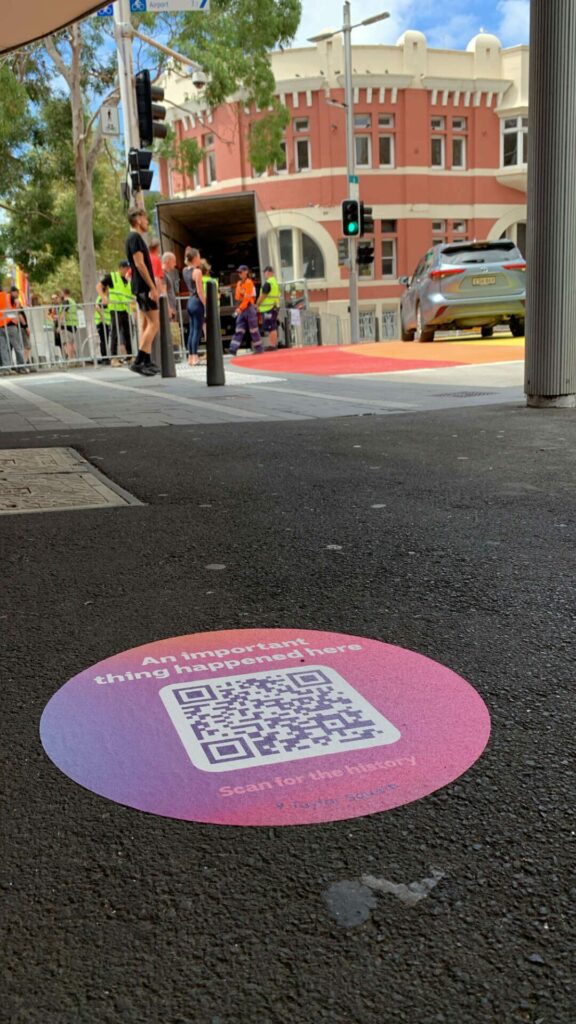
My main goal with the QR code project was not to achieve a high reach but to foster meaningful engagement with a specific community. We knew there were going to be thousands of people in these areas for World Pride however we wanted to ensure we were putting this content in front of the audience for whom it mattered the most. And we saw results — visitors who accessed the World Pride interactive through the QR codes had a notably longer time spent on site compared to all other visitors.”



